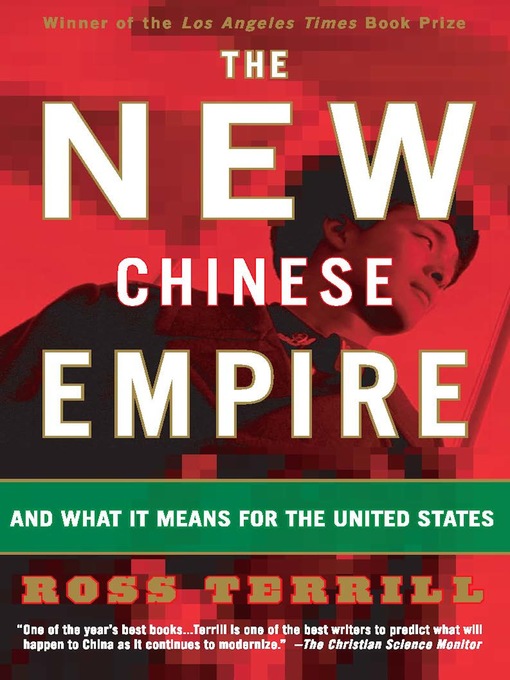The New Chinese Empire
Beijing's Political Dilemma And What It Means For The United States
-
Creators
-
Publisher
-
Release date
March 5, 2009 -
Formats
-
Kindle Book
-
OverDrive Read
- ISBN: 9780786740352
- File size: 1154 KB
-
EPUB ebook
- ISBN: 9780786740352
- File size: 1154 KB
-
-
Languages
- English
-
Reviews
-
Publisher's Weekly
March 3, 2003
Experienced China-watcher Terrill (Mao: A Biography) has viewed with a skeptical eye China's emergence as a major player in the international community. In this rather one-sided view of China's future, he implores the West not to pursue a policy of naïve engagement with the People's Republic, citing what he considers to be the dangerous state-centered legacy of the nation's dynastic past. Of principal concern to Terrill is China's continued territorial control over the culturally alien border regions of Tibet, Xinjiang and Inner Mongolia. This imperial expansionism is driven in part by what Terrill identifies as an arrogant sense of entitlement in the minds of China's leaders, coupled with a military capability that he overstates to buttress his provocative conclusion: that China is a "misfit" in the international system and is what Terrill calls a "semiterrorist outfit." The author also argues that if malcontented minorities on China's periphery don't tear apart the Communist regime, then a faltering Chinese economy will. Communist repression limits what Terrill crudely describes as the "Chinese genius for business" and the people's "industriousness," and, he expects, will bring about a powerful backlash against the state. One symptom of the coming collapse identified by Terrill relates to a yawning gap in income among workers and the fact that 1% of Chinese owns 40% of the country's wealth. This is alarming, but hardly foreshadows the country's collapse when one considers the size of the economic gap in the U.S. Maps. -
Booklist
May 1, 2003
Is the People's Republic of China willing to become a modern nation, asks Terrill, or does it insist on remaining an empire? What will the China of the future look like and how might political change occur? Emphasizing present-day, post-Mao China's essential continuities with its 2,500-year-old imperial roots, the author describes the emerging tension between old and new as rooted in long and familiar historical tensions: the needs of the individual versus those of the state, Confucianism versus legalism, and an "us-versus-them" approach to foreign policy. The Chinese state has seen many political changes--indeed, revolutions--but these states have often wielded power similarly, especially regarding the rights of the individual, the treatment of territories like Taiwan and Hong Kong, and an insistence on centralized power. These deeply held imperial values, argues Terrill, are what keeps China from becoming a modern nation at the head of the global community, and what must bend if the current state is to keep from cracking. Insightful predictions and critical yet astute observations.(Reprinted with permission of Booklist, copyright 2003, American Library Association.)
-
Loading
Why is availability limited?
×Availability can change throughout the month based on the library's budget. You can still place a hold on the title, and your hold will be automatically filled as soon as the title is available again.
The Kindle Book format for this title is not supported on:
×Read-along ebook
×The OverDrive Read format of this ebook has professional narration that plays while you read in your browser. Learn more here.


